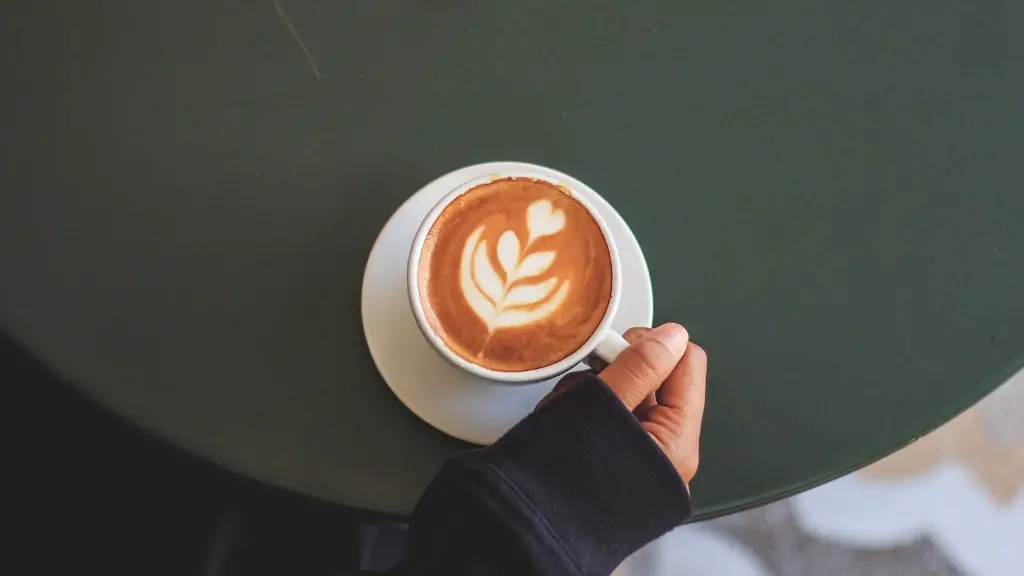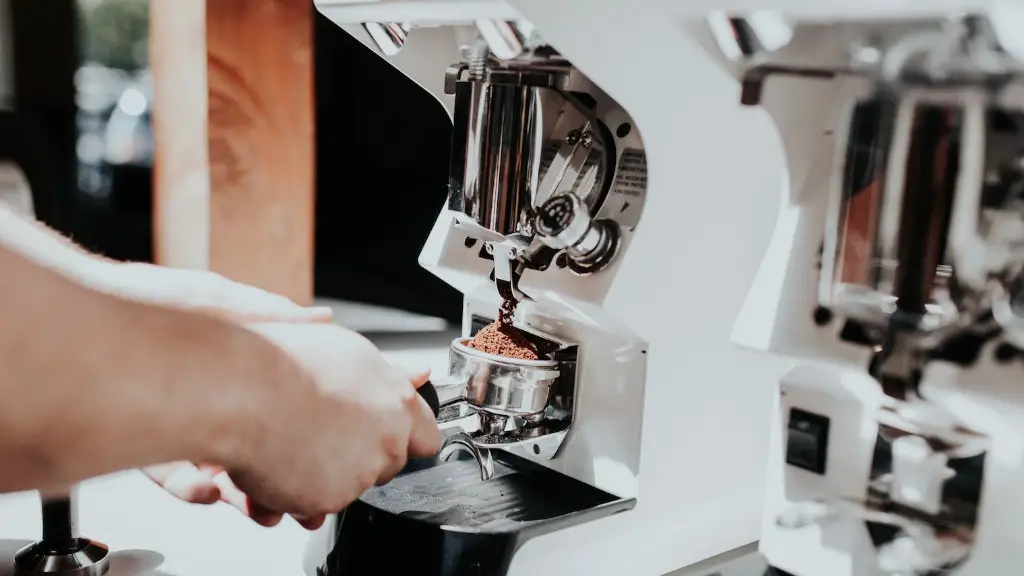Introducing Coffee
Coffee is a caffeinated beverage, derived from the coffee plant, that is popular world wide. This popular drink contains an energizing compound called caffeine and is often used to increase alertness and productivity, provide longer-lasting interventions for people who need to stay awake for extended periods of time, or simply to provide an enjoyable morning beverage for many who enjoy the ritual. The caffeine in coffee is known to have a variety of positive benefits. It can increase focus, alertness and reaction times, as well as provide a much needed morning pick-me-up. But when is the best time to drink coffee? In this article, we will explore the different factors that can impact the optimal time to drink coffee and provide some advice to help you decide when it’s best for you to consume coffee.
How Coffee Works
When consuming coffee, the caffeine is quickly absorbed into the system and starts to have an effect on the body. Caffeine binds to the receptors of the adenosine receptors in the brain and blocks the action of adenosine, which is a natural sleep molecule. This prevents the drowsiness caused by adenosine and results in an increased level of alertness. It also increases the levels of dopamine and norepinephrine, which are two of the “feel good” neurotransmitters. Ultimately, the effects of caffeine are dependent on several variables including genetics and your daily caffeine intake.
Duration of Caffeine Effects
Caffeine is quickly absorbed into the system and begins to take effect immediately. However, its effects can vary in duration depending on the way it is ingested and the amount consumed. When coffee is consumed in liquid form, its effects may come on quickly and last up to four hours, depending on the person. Those who are sensitive to caffeine may experience its effects for up to six hours after drinking coffee.
When to Drink Coffee
The timing of when to drink coffee can depend on a variety of factors. For instance, those who have trouble falling asleep at night may want to cut back on caffeine consumption late in the day. Caffeine can remain in the body for up to six hours, so it’s best to avoid drinking coffee too close to bedtime. Similarly, those who experience anxiety or restlessness after drinking coffee should also limit their intake.
Coffee and Performance
Studies have shown that drinking coffee can improve performance on physical and mental tests. However, it’s important to remember that caffeine levels in the body can vary from person to person. Some people may need to drink coffee early in the morning in order to reap the benefits of a boost in performance, while others may get the same effect later in the day. It’s important to experiment with your own individual needs in order to determine when is best for you to drink coffee.
Using Coffee to Your Advantage
In addition to providing an energy boost and improved performance, coffee can also be used strategically to increase productivity. Many people find it helpful to schedule time for a coffee break in order to give themselves a mental break and help them refocus on their tasks at hand. While coffee can be beneficial, it’s important to remember not to overdo it, as excessive caffeine consumption can cause irritability, anxiety and other negative side effects.
Drinking Coffee For Pleasure
Finally, if you’re one of the many people who simply enjoy drinking coffee for its flavor, aroma and warmth, then you can still reap some of the positive benefits of the beverage. While it’s true that caffeine can provide a short-term boost in alertness, some people find it helpful to take a few days off from drinking coffee in order to break their addiction and reset their system. Taking regular breaks can also help you sleep better and allow you to enjoy your coffee in moderation.
Benefits of Coffee
Coffee can provide numerous health benefits, especially when consumed in moderation. Studies have linked coffee consumption with a decreased risk of developing certain types of cancer, while other studies have shown that drinking coffee can reduce the risk of developing type 2 diabetes and heart disease. Coffee is also a great source of antioxidants, which are beneficial for improving overall health and preventing disease.
Negative Effects Of Coffee
While coffee can be a great source of alertness and energy, it can also be detrimental if consumed in excess. Too much caffeine can cause jitteriness, anxiety, insomnia, dehydration and other negative side effects. Additionally, coffee may negatively interact with certain medications or supplements, so it’s best to consult with a doctor or pharmacist prior to consuming coffee if you take any prescription or over-the-counter medications.
Precautions When Drinking coffee
When drinking coffee, it’s important to remember to drink in moderation and avoid overdoing it. Additionally, it’s important to practice proper hygiene when preparing coffee, such as making sure your hands and utensils are clean. Furthermore, you should always check the ingredients in coffees and other caffeinated beverages in order to avoid consuming additives or other ingredients that could be harmful.
Foods to Combine With Coffee
It’s important to note that coffee can be a great partner to various types of food and beverages. For instance, coffee pairs well with chocolate, nuts and other healthy snacks. Additionally, coffee can be combined with plant-based milks such as almond or coconut to make delicious and nutritious lattes. Ultimately, finding the right combination of food and coffee can help you reap the positive benefits of the beverage.
Tips for Making a Great Cup of Coffee
For those who wish to get the most out of their coffee, it’s important to know the fundamentals of making a great cup. Start with fresh, high-quality beans, use cold water with a good filter and try using different brewing methods and grind size. Additionally, it’s important to properly store your beans in an airtight container in order to preserve their flavor and freshness. Finally, if you’re looking for a stronger cup, try adding more grounds to your brew.
Coffee Alternatives
While coffee may not be suitable for everyone, there are plenty of alternatives that can provide the same benefits. For example, green tea contains less caffeine and offers a variety of antioxidants. Additionally, black or herbal teas can provide a milder coffee-like effect with an added bonus of additional nutrients. Finally, there are a variety of decaffeinated coffee alternatives available for those who are looking for a healthier option.
Using Caffeine Responsibly
Caffeine can be a great way to boost energy and productivity, but it’s important to remember to use it responsibly. While coffee may provide numerous health benefits, it’s important to ensure that it isn’t causing any adverse effects such as jitteriness, anxiety or restlessness. Additionally, it’s important to know when to take a break in order to avoid becoming addicted to caffeine or developing tolerance to its effects. Finally, it’s important to always make sure to practice safe hygiene and storage when preparing and consuming coffee.



